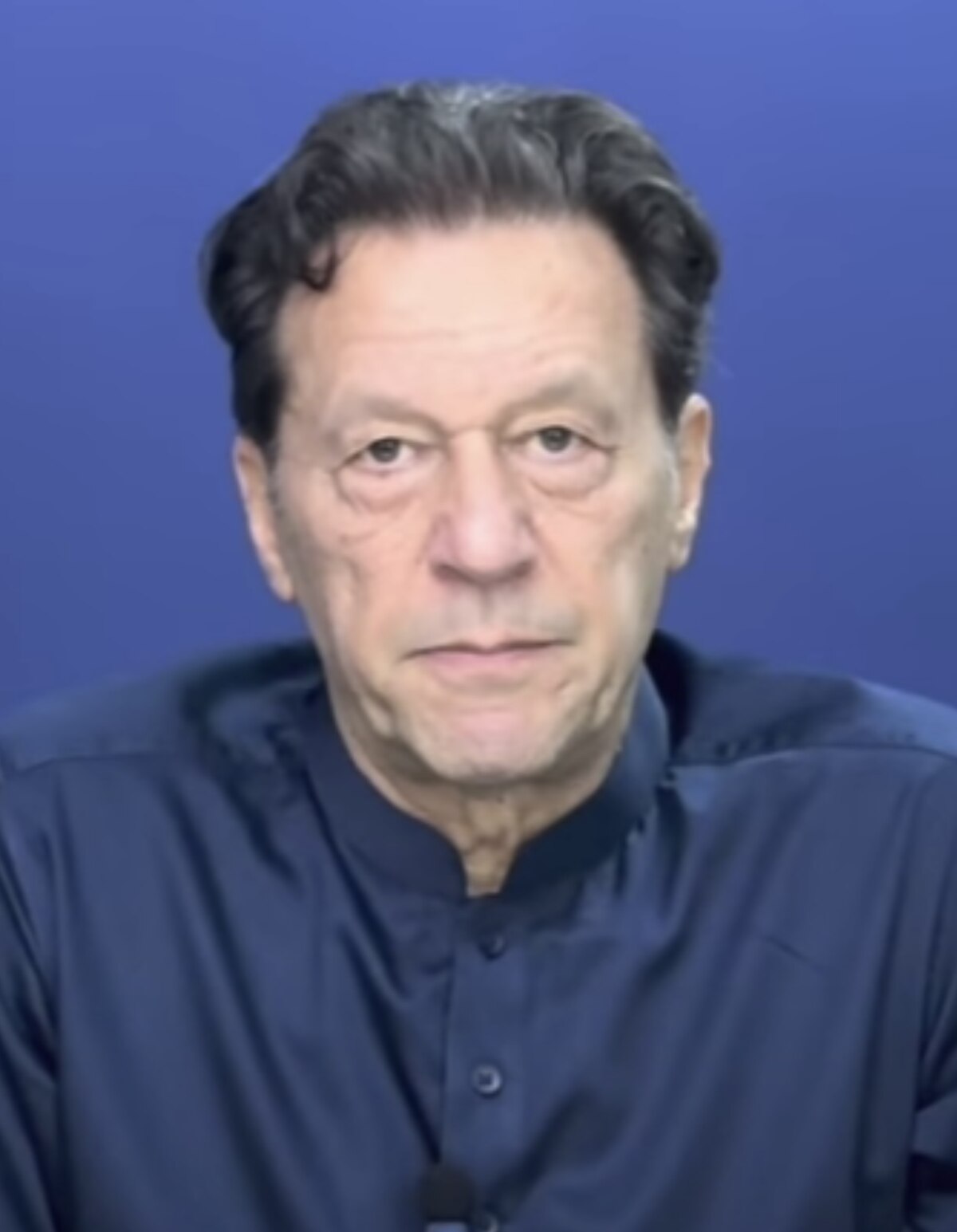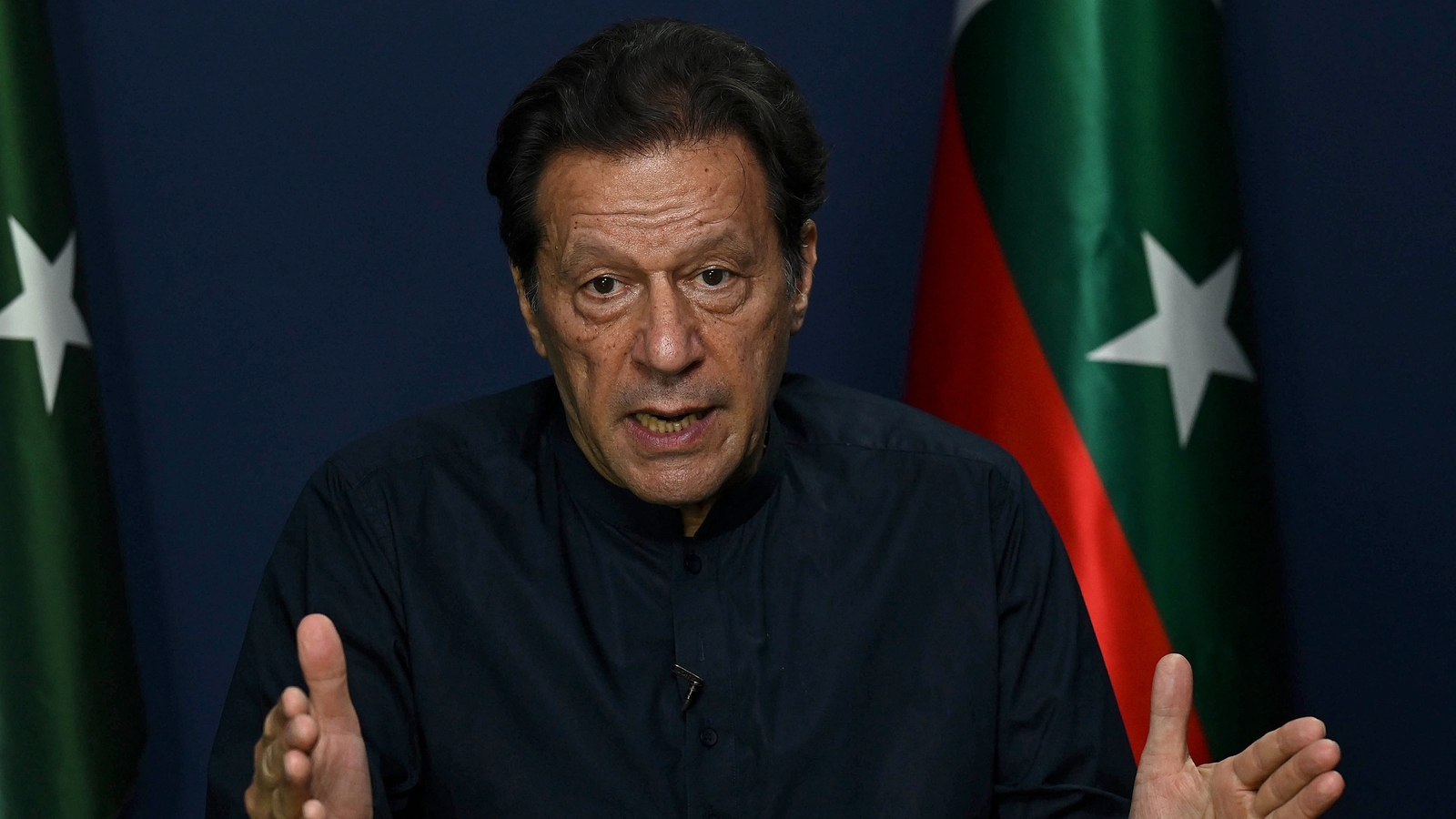Social media erupted in a frenzy last night, fueled by whispers of a shocking event – the death of former Pakistani Prime Minister Imran Khan.

The news spread like wildfire, leaving many grappling with disbelief and a torrent of unanswered questions. Was this a malicious rumor, a misunderstanding, or something more sinister? As the Pakistani people sifted through the digital storm, the official narrative began to emerge, casting a stark light on the power of misinformation in the digital age.

The Cipher Case Explained
The Cipher case revolves around allegations that Imran Khan, Pakistan’s former prime minister, divulged classified diplomatic correspondence, jeopardizing national security and potentially inciting instability. This case stems from Khan’s claim that a US diplomatic cable, leaked to him during his tenure, exposed a plot to destabilize his government. Khan presented the purportedly altered document at a rally in March 2022, a month before his removal from office through a no-confidence vote. He asserted that the cable indicated a willingness by the US to overlook Pakistani concerns if Khan was ousted.
Diplomatic Secrets and Political Allegations
The heart of the Cipher case lies in the alleged disclosure of confidential diplomatic communication between the Pakistani ambassador in Washington and Islamabad’s foreign ministry. Khan’s supporters contend that the document, which he brandished during a rally, revealed a US-backed conspiracy to topple his government. They argue that the cable suggested the US was prepared to tolerate Pakistan’s economic problems if Khan was removed from power. Khan himself has repeatedly maintained that the document was authentic and provided irrefutable evidence of foreign interference in Pakistan’s internal affairs.
However, Washington has vehemently denied any involvement in a plot to remove Khan from office. The US government maintains that the document in question, which Khan publicly displayed, was manipulated to serve his political agenda. They argue that the allegations are baseless and an attempt to deflect blame for Khan’s own political failings.
Khan’s Actions and the Prosecution’s Argument
The prosecution argues that Khan’s actions during the March 2022 rally, where he displayed the alleged diplomatic communication, constituted a breach of national security. They contend that Khan’s public disclosure of sensitive information, regardless of its authenticity, posed a threat to diplomatic relations and violated Pakistan’s Official Secrets Act. This act carries severe penalties, including life imprisonment or even the death penalty for divulging classified information.
The prosecution maintains that Khan’s claims of a US-backed conspiracy were unsubstantiated and intended to provoke public sentiment against the US and undermine Pakistan’s democratic institutions. They argue that Khan’s actions were a deliberate attempt to create a climate of fear and mistrust, ultimately aiming to discredit his political opponents and cling to power.
Azam Khan’s Testimony and the Defense’s Stance
Adding another layer to the case, Azam Khan, Khan’s former principal secretary, testified in 2023, alleging that the document displayed by Khan had been manipulated. Azam Khan claimed that he had witnessed Khan altering the document to support his narrative of a foreign conspiracy. This testimony further complicates the case, raising questions about the authenticity of the document and Khan’s motives for displaying it.
Khan’s legal team vehemently denies the allegations, insisting on his innocence. They argue that the Cipher case is politically motivated, aimed at silencing Khan and preventing him from challenging the current government. The PTI, Khan’s political party, has repeatedly denounced the case as a “sham trial” orchestrated by the government to suppress dissent. They claim that the prosecution lacks credible evidence and that the entire case is based on fabricated charges.
Political Ramifications and Wider Context
The Cipher case has sent shockwaves through Pakistan’s already turbulent political landscape. The case’s outcome has significant implications for Khan, his party, and the country’s fragile democracy. Khan’s conviction in the Cipher case, along with his prior conviction on corruption charges, significantly hampers his political future. With these convictions, he is ineligible to run for office in the upcoming February 8 parliamentary elections.
This development underscores the government’s determination to curtail Khan’s political influence and prevent his potential return to power. The case also highlights the deeply polarized political climate in Pakistan, where accusations of foreign interference and political vendettas are commonplace.
The Cipher case has further strained relations between Pakistan and the US. While the US maintains its innocence and denies any involvement in a plot against Khan, his allegations have fueled anti-American sentiment within Pakistan. This development complicates already delicate diplomatic ties between the two countries.
- Impact on Khan’s Party: The conviction of Khan and Qureshi presents a major setback for the PTI, further weakening its already fractured leadership. It remains to be seen how the party will navigate this crisis and whether it can regain its footing in the upcoming elections.
- Implications for Pakistan’s Democracy: This case raises concerns about the erosion of democratic norms and the use of legal mechanisms for political retribution. The conviction of a former prime minister on charges widely perceived as politically motivated casts a shadow over the independence of Pakistan’s judiciary and the rule of law.
- International Response: The international community, particularly Western democracies, has expressed concern about the case and called for a fair and transparent trial. However, the conviction of Khan suggests that the Pakistani government is determined to pursue its case against him, regardless of international pressure.
Imran Khan’s Political Trajectory and the Upcoming Elections
The recent conviction of former Pakistani Prime Minister Imran Khan in the Cipher case has sent shockwaves through the country’s political landscape. As Khan faces a 10-year prison sentence for disclosing official secrets, his eligibility to run in the upcoming February 2024 parliamentary elections hangs in the balance.
Khan’s conviction, along with that of his party’s deputy Shah Mahmood Qureshi, has raised questions about the future of the Pakistan Tehreek-e-Insaf (PTI) party and its chances in the elections. The PTI has been one of the main opposition parties in Pakistan, and Khan’s leadership has been instrumental in its success.
According to the Pakistan Election Commission, Khan is ineligible to run in the elections due to a prior conviction in a corruption case. However, Khan’s party has vowed to challenge this decision and has hinted at the possibility of Khan’s appeal being successful.
Analysts believe that Khan’s conviction and the subsequent conviction of Qureshi may have a significant impact on the PTI’s chances in the elections. The PTI has been seen as a major contender in the elections, and Khan’s leadership has been crucial in its success.
The upcoming elections are expected to be highly contested, with several opposition parties vying for power. The PTI’s chances in the elections will depend on various factors, including Khan’s appeal and the party’s ability to attract voters.
Impact on the PTI and the Broader Pakistani Political Landscape
- The PTI’s chances in the elections may be significantly impacted by Khan’s conviction and the subsequent conviction of Qureshi.
- The conviction of Khan and Qureshi may lead to a power vacuum in the PTI, potentially destabilizing the party’s leadership.
- The broader Pakistani political landscape may be affected by the PTI’s performance in the elections, particularly if the party is able to attract a significant number of voters.
Crackdown on Dissent and the Erosion of Democratic Norms
The conviction of Khan and Qureshi in the Cipher case has raised concerns about the government’s crackdown on dissent and the erosion of democratic norms in Pakistan.
The case against Khan and Qureshi was based on allegations of disclosing official secrets, which has been seen as a crackdown on free speech and the right to dissent.
Analysts believe that the government’s actions may be part of a broader pattern of suppressing dissent and opposition in Pakistan.
The conviction of Khan and Qureshi may have significant implications for freedom of speech, the rule of law, and the future of democracy in Pakistan.
Impact on Freedom of Speech and the Rule of Law
- The conviction of Khan and Qureshi may set a precedent for suppressing dissent and opposition in Pakistan.
- The case against Khan and Qureshi has been criticized for being politically motivated and for violating the principles of free speech and the rule of law.
- The conviction of Khan and Qureshi may have a chilling effect on freedom of speech and the right to dissent in Pakistan.
International Response and the Perception of Pakistan’s Justice System
The international community has been critical of the conviction of Khan and Qureshi in the Cipher case, with many voicing concerns about the fairness and transparency of the trial.
The United States, a key ally of Pakistan, has expressed concerns about the conviction of Khan and Qureshi, and has called for a fair and transparent trial.
Analysts believe that the international community’s response to the conviction of Khan and Qureshi may have a significant impact on Pakistan’s reputation and its ability to attract foreign investment and aid.
The conviction of Khan and Qureshi may have implications for Pakistan’s international relations, particularly with countries that value democracy and the rule of law.
Impact on Pakistan’s International Reputation and Aid
- The conviction of Khan and Qureshi may damage Pakistan’s international reputation and its ability to attract foreign investment and aid.
- The international community’s response to the conviction of Khan and Qureshi may have a significant impact on Pakistan’s relations with key allies and partners.
- The conviction of Khan and Qureshi may have implications for Pakistan’s access to international aid and assistance.
The Path Ahead: Legal Battles and Political Uncertainty
Khan’s party has vowed to challenge the conviction and has hinted at the possibility of Khan’s appeal being successful.
Analysts believe that the appeal process may be a long and complex one, with several legal avenues available to Khan’s party.
The appeal process may take several months or even years, and may involve several court hearings and appeals.
The appeal process may have significant implications for the PTI and the broader Pakistani political landscape.
Khan’s Appeal and the Potential for Legal Recourse
- Khan’s party has vowed to challenge the conviction and has hinted at the possibility of Khan’s appeal being successful.
- The appeal process may be a long and complex one, with several legal avenues available to Khan’s party.
- The appeal process may involve several court hearings and appeals, and may take several months or even years.
Protests and Political Instability
The conviction of Khan and Qureshi has sparked widespread protests and demonstrations across Pakistan.
The protests have been largely peaceful, but have been marked by clashes between protesters and security forces.
Analysts believe that the protests may have significant implications for the PTI and the broader Pakistani political landscape.
The government has deployed security forces to maintain order and has warned protesters of the consequences of violent behavior.
Factors Contributing to Protests and Political Instability
- The conviction of Khan and Qureshi has sparked widespread protests and demonstrations across Pakistan.
- The protests have been largely peaceful, but have been marked by clashes between protesters and security forces.
- The government has deployed security forces to maintain order and has warned protesters of the consequences of violent behavior.
Conclusion
In conclusion, the recent death hoax surrounding Imran Khan, the former Prime Minister of Pakistan, has been unequivocally debunked by the Pakistan Ministry. This fabricated news item, which spread like wildfire across social media platforms, has not only caused unnecessary panic and anxiety among Khan’s supporters and the general public but has also raised serious concerns about the reliability and credibility of social media as a news source. This incident serves as a stark reminder of the importance of fact-checking and verifying information, particularly in the digital age where misinformation can spread rapidly and have far-reaching consequences.
The significance of this incident extends beyond the realm of Pakistani politics. It highlights the pressing need for social media platforms to take concrete steps to curb the spread of fake news and propaganda. Furthermore, it underscores the importance of media literacy, encouraging individuals to critically evaluate the information they consume online. As we move forward in an increasingly digital world, it is imperative that we prioritize the dissemination of accurate and credible information to maintain the integrity of our digital ecosystem.
Ultimately, the Imran Khan death hoax debacle is a sobering reminder of the power of misinformation to shape public opinion and manipulate the narrative. As responsible digital citizens, it is our collective responsibility to remain vigilant and proactive in combating the scourge of fake news. Only by doing so can we create a digital environment that is transparent, trustworthy, and genuinely empowering.
